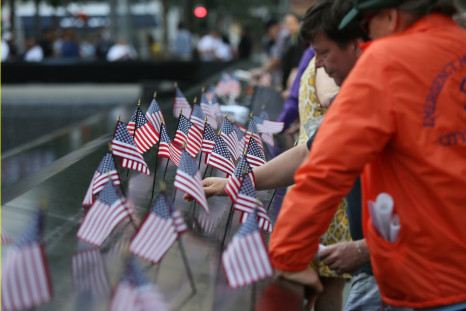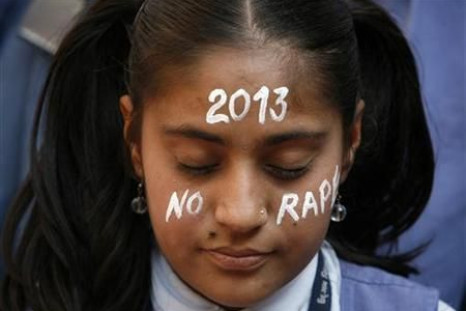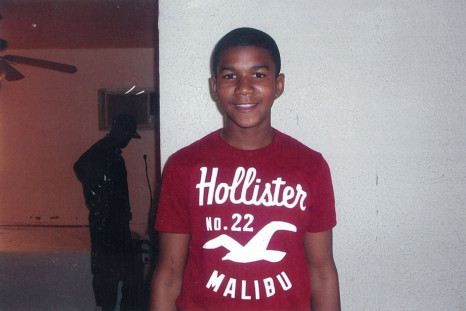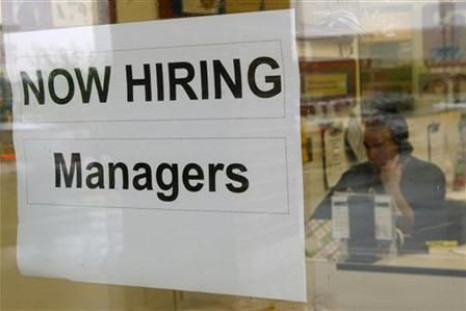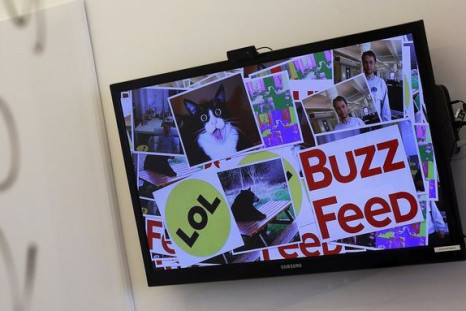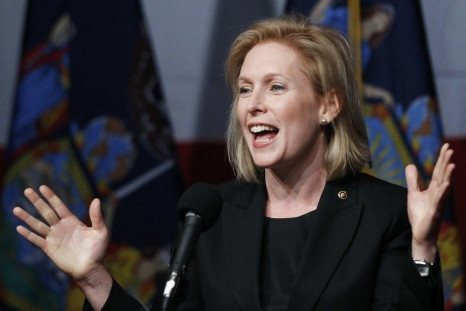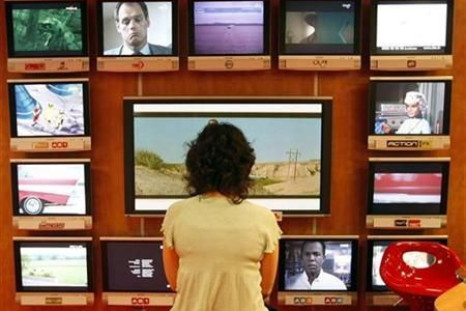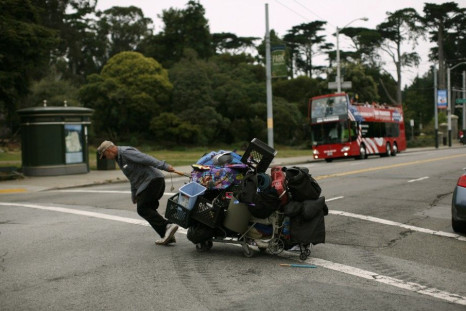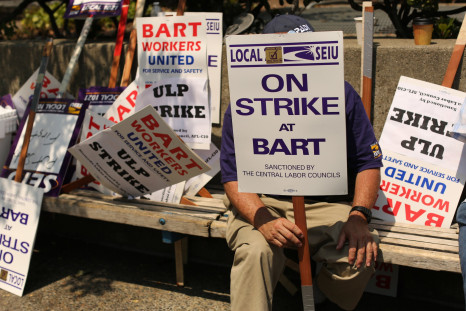September 11th: Readers Share Their Stories From Morning Of 9/11 Attacks
Our readers share their stories from the day of the Sept. 11 attacks.
Rape Laws In Dubai Are Awful, But So Is Rape Culture In America
Yesterday, my colleague Alex Kaufman commented on the awful case in Dubai of the Norwegian woman who reported her rape to police and was thrown in prison for 'extramarital sex', which is apparently illegal there. He basically argued, not incorrectly, that we should pressure Dubai to change its laws via boycott. And make no mistake, their laws are awful, but while his frustration is fair, the experience of women who are raped here is not that much better.In a recently published a personal essay in VICE, Gina Tron writes about her awful experience dealing with authorities after she was raped.
Not The Law: The Culture Failed Trayvon Martin
The George Zimmerman verdict shouldn't really surprise anyone. The case really couldn't have gone any other way; in a situation like this with few witnesses and a lot of conflicting accounts, it is much easier for the defense to put enough reasonable doubt in the jury's minds than it was for the prosecution to do otherwise. The problem, really, has less to do with the specifics of the case and law and a lot more to do with how we apply that law.
Man Experiences Gender Discrimination, Suddenly Realizes It Exists
I've seen this interesting Tumblr post floating around the Internet lately. The short version is this: A man named Kim applies for jobs, gets a lot of rejections, then tacks 'Mr.' before his name on his resume and suddenly gets interviews.
I Can Haz Journalism: The Listicle (And The GIF) As Storytelling Devices
Can listicles function as a legitimate journalistic form? A tweet from friends forced me to reconsider the issue.
Don't Call New York Senator Kirsten Gillibrand "Girlie"
Name It, Change It, an organization dedicated to pointing out sexism in the media, recently criticized an NPR report about New York Senator Kirsten Gillibrand that described her as "petite, blond and perky" with a "soft, girlie voice." The story was eventually revised to remove those references.
Guess Who Talks About Abortion On Cable News? (Hint: Not Experts)
Building off a bit of yesterday's post on the lack of diversity within the newsroom, it appears cable news' diversity problem extends beyond merely the people in the newsroom, but the people who appear as guests as well. Media Matters reports that, of the 92 guests that discussed Texas' abortion bill on cable news (the one Wendy Davis filibustered), only four of them were women's health experts. Unsurprisingly, Fox News hosted none, "while CNN and MSNBC hosted two and three, respectively."
The Lack Of Diversity In The Newsroom Is Bad For Society
The American Society of News Editors annual study of newsroom diversity just came out, and The Atlantic's Riva Gold did a terrific job describing the current state of newsroom diversity and its causes.At a time when non-whites make up roughly 37 percent of the U.S. population, the percentage of minorities in the newsroom has fallen to 12.37 percent from its 13.73 percent high in 2006. In last year's 2012 ASNE study, overall newsroom employment was down 2.4 percent, but the picture looked much worse - down 5.7 percent - for minorities.It's bad and getting worse, and the most important aspect of this isn't necessarily its impact on individuals, though that is a problem, but its impact on society.
If You Want To Privatize BART, You Can Probably Afford Something Else
The BART strikes are in full swing, and the reaction from the locals highlights striking differences in how different socio-economic status groups treat public services. Given its location in San Francisco, you would expect to see a outpouring of indignation from the tech industry, and you'd be right: PandoDaily has this amusingly myopic piece from writer Sarah Lacey (hat-tip to ValleyWag for pointing this one out), which ends with this money quote:"I’ll say this: The last few days have been a rare opportunity for cab drivers to shine. Every cab I’ve taken has been impeccably clean, accepted credit cards with no grousing, and the drivers have been incredibly polite. Although they all hate the scourge of Uber, Lyft, and Sidecar, the result of those services coming into the market is what’s made my commute to and from work bearable this week. Competition, it turns out, does indeed make everyone better. It’s too bad no one is working on disrupting BART."
In Praise Of Getting Paid: Support For Internships Get The Facts Wrong
This morning, Michael Moroney wrote one of those pro-internship op-eds that seem to be so in vogue these days. But like so many who've come before him, Moroney failed to get all the facts first. He started with criticizing the recent lawsuits, so we'll start with this:"As Forbes recently noted, the Supreme Court established nearly six decades ago in Walling v. Portland Terminal Co. that unpaid internships are legal and exempt from minimum wage laws as long as six conditions are met. These conditions heavily emphasize that the internship is to the benefit of the intern, not the employer. Thus, so long as the intern is aware of, and agrees to, the fact that his internship is unpaid, and the employer approaches the internship with the intention of training the intern rather than just receiving output from him or her, the internship is lawful."
The Ethicist Is Wrong: Self-Plagiarism Is Cheating
The Ethicist responded the other day to a really interesting letter: A student had been given two assignments with enough overlap between them to be able to submit the same paper to both. Was this cheating, he asked?After pulling back from his knee-jerk reaction, he decides this is not, in fact, cheating.
Accidentally Sexist: Warren Buffett Edition
Discrimination, as it becomes less obvious, becomes a more difficult problem to root out. It becomes less about the obvious repression and more about the way past discrimination is still deeply embedded in the social fabric. We often generally espouse views of equality and respect, but individual actions and views, unbeknownst to ourselves, don't align.To start with the niceties, I do think Warren Buffett has his heart in the right place. I do think he wants women to be equally represented in the workplace. Unfortunately, you can't get equality when you lead with victim blaming.
Power To The Tweeples!
The real interesting question is the last one: Does the power actually lie in Twitter’s hands? I don't think so, and the fact that it doesn't is what makes it not a media company.
AP Social Media Guidelines Are A Step In The Right Direction
On Tuesday, the Associated Press released an update to its social media guidelines. Obviously a response to the Boston Marathon bombing, the updates were intended to focus mostly on the news gathering and dissemination process around breaking news events -- called “sensitive situations.” And they did a decent job.This is my favorite part:If some of this advice doesn’t sound very concrete, there’s a good reason -- a lot of these decisions need to be made on a case-by-case basis, and they require you to call on your journalistic instincts.
The Sunil Tripathi Saga Is Not A Lesson About Police Scanners, But Social Media
How the Sunil Tripathi story got disseminated is more a lesson about the use of social media than it is about the use of police scanners.
Politico Accidentally Points Out Sexism At The New York Times
The New York Times' reporters don't like working for Jill Abramson, according to a new article by Politico. But is their stance due to sexism?
There’s No Such Thing As Journalistic Objectivity
The New York Times' equivocation over the use of torture leaves everyone worse off.
What Glenn Beck And Sarah Palin Don't Understand About Education
Conservatives are outraged over an MSNBC promo, but they don't know what they're talking about.



